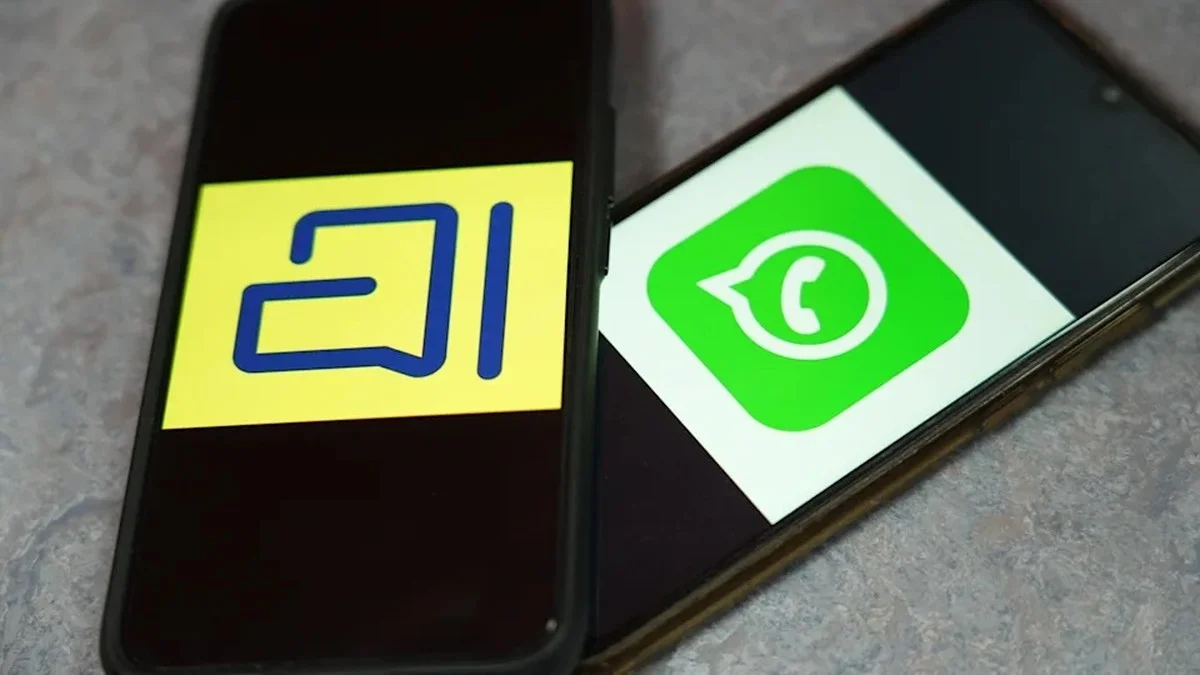08/10/2025
08/10/2025

NEW DELHI, Oct 8: Can a homegrown Indian messaging app really compete with WhatsApp, which dominates India’s communication landscape?
Arattai, developed by Indian tech company Zoho, has recently become a viral sensation in India. The company reported seven million downloads in just one week, a remarkable jump from fewer than 10,000 downloads in August, according to market intelligence firm Sensor Tower.
The app, whose name means "banter" in Tamil, was quietly launched in 2021 but remained largely unnoticed until now. Its sudden popularity surge is widely linked to India’s government push for self-reliance and “Make in India” initiatives, especially as the country navigates steep US trade tariffs.
Federal Minister Dharmendra Pradhan endorsed Arattai publicly, urging citizens to use Indian-made apps to stay connected, sparking further government and business support. Zoho CEO Mani Vembu told the BBC that user sign-ups surged from 3,000 to 350,000 per day within three days, with active users rising 100-fold.
Despite the rapid growth, experts caution that Arattai still trails far behind WhatsApp’s massive user base of 500 million monthly active users in India, where WhatsApp has become integral to daily life — used for everything from personal chats to business and government communications.
Arattai offers features similar to WhatsApp, including messaging, voice and video calls, business tools, and functionality optimized for low-end phones and slow internet speeds. Many users have praised Arattai’s interface and usability, while also appreciating its Indian origin.
However, Indian apps face a challenging path. Previous local apps like Koo and Moj briefly gained popularity as alternatives to X (formerly Twitter) and TikTok but failed to sustain momentum. ShareChat, once seen as a potential WhatsApp rival, has also scaled back ambitions.
Tech analyst Prasanto K Roy notes that WhatsApp’s entrenched user base, including many businesses and government services, makes it difficult for new apps to compete. Success for Arattai will depend not only on attracting new users but retaining them — something that nationalist sentiment alone can’t guarantee.
Privacy concerns have also been raised. Arattai currently provides end-to-end encryption (E2EE) for voice and video calls, but not yet for text messages. Critics highlight government demands for message traceability, which conflicts with encryption and could jeopardize user privacy.
Zoho says it is actively working to implement E2EE for messages soon. CEO Mani Vembu explained that although they initially planned to launch with full encryption, they expedited the app release to introduce critical features faster.
WhatsApp offers E2EE for all communications, but it can share metadata with governments under legal requirements. India’s laws require social media platforms to share user data with authorities, but international companies like Meta and X have the resources to legally challenge or negotiate these demands — something smaller Indian firms may find harder.
Legal expert Rahul Matthan points out that without transparency about how Arattai handles user data and government requests, many users may hesitate to adopt the app fully. Mr. Roy adds that given the government promotion of Arattai, Zoho could face pressure to comply with official data requests, making strong resistance difficult.
Mani Vembu assures users that Zoho aims to balance data control with compliance, stating, “Once full end-to-end encryption is rolled out, even we won’t have access to the content of user conversations. We will be transparent with our users about any legal obligations.”
Despite the enthusiasm and government backing, Arattai faces steep competition against giants like WhatsApp and Facebook, which are deeply embedded in Indian users’ lives. Whether Arattai will carve out a lasting niche or fade like many predecessors remains to be seen.


